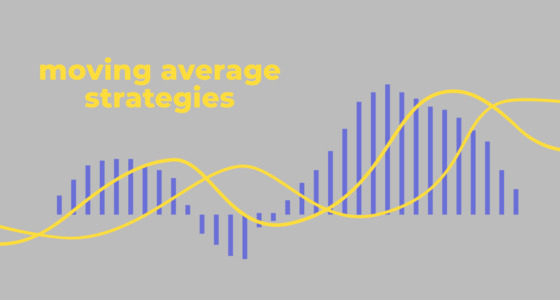

Everyone has to start somewhere. Oprah Winfrey began her career in humble circumstances, Sylvester Stallone’s pitch for Rocky was originally rejected, and Mark Zuckerberg forgot to wear his shoes to an investor meeting. These anecdotes serve as powerful reminders that no matter where you begin, it’s the perseverance and determination to learn that pave the way for triumph.
As a novice trader, it’s essential to embrace your own journey and not be discouraged by initial challenges. Instead, focus on building your expertise and finding the time frames that work best for you. Speaking of timeframes, here is what you should know:
Do time frames matter when trading?
Yes, they do.
Different time frames reveal different aspects of market behavior and can impact trading strategies significantly.
The chosen time frame affects the level of detail and the duration of the price data being analyzed. For any trader, beginner or not, this information is crucial for identifying patterns, trends, and key support and resistance levels.
Additionally, a time frame impacts the timing of entry and exit points for trades by providing different signals for potential opportunities. And so, traders are able to adapt their strategies based on the time frame they are operating in to effectively manage risk and maximize profits.
When it comes to determining the best time frame to trade, it largely depends on the individual’s trading style. Below are different scenarios of how each trader can find their own rhythm in the market.
Best time frames for scalpers
Scalping is a trading style that is not considered beginner-friendly due to its fast-paced nature and the need for advanced skills and experience. But if you choose to explore this style despite its complexities, it’s generally recommended to stick to the upper range of the short time frames, such as the 15-minute time frame.
Quick note:
- Shorter time frames = lower time frames = smaller time intervals (minutes, hours)
- Medium time frames = days
- Longer time frames = higher time frames = larger time intervals (weeks, months, years)
When you become more experienced, you can experiment with one- or two-minute time frames, which are very popular among scalpers.
Best time frames for day traders
Day traders also adopt a short-term trading approach, but longer-term compared to scalpers. The optimal time frame for this style ranges from 15 minutes to four hours. This time frame allows day traders to capture intraday price movements and catch short-term trends.
The advantage of being a day trader is having the flexibility to select from various time frames based on factors, such as market liquidity, available time for trading, and preferred trading strategy. A trader who has limited time for trading should opt for a lower time frame, while a full-time day trader will have more availability to observe longer trends on a 4-hour chart.

Best time frames for swing traders
Swing traders’ preferred time frames can range from a few days to several weeks or even months. These charts filter out short-term noise and fluctuations, allowing traders to focus on the prevailing market direction and major price moves.
The core philosophy of swing trading is to capitalize on broader price movements over time by observing macro trends and employing technical analysis to identify optimal entry points. This approach requires patience, market knowledge, and expertise. It’s particularly effective with assets that exhibit lower volatility.
Best time frames for position traders
Position traders enter the market with the intention of holding their position for an extended period, anticipating that the value will increase over time. Unlike active traders, they make fewer trades and focus on long-term time frames, ranging from several weeks to even a year.
This approach is distinct from traditional long-term investing, as position traders actively monitor the market trends and adjust their positions. Their strategy revolves around identifying and capitalizing on major market movements rather than simply holding investments indefinitely.
What about multiple time frame analysis?
Typically, using three different periods gives a broad enough reading on the market.
Instead of focusing solely on a single time frame, traders are encouraged to analyze price data from different durations to obtain a broader perspective. They begin by selecting their primary time frame, which aligns with their objectives and serves as the point of main reference. If you have a low one as the primary time frame, like a 15-minute chart, look into hourly and daily charts, too.
This approach will benefit you through:
- Confirmation — For example, if the higher time frame shows an uptrend and the lower time frame exhibits a bullish reversal pattern, it enhances the likelihood of a successful trade.
- Timing and precision — By considering shorter time frames, you can identify optimal entry points within the larger trend identified on higher time frames.
- Contextual perspective — A broader context helps traders understand the larger trend and market structure within which their trades are taking place.
It’s worth noting that the number of time frames used in analysis can vary depending on individual preferences and strategies. While three different periods are commonly used to provide a broad reading on the market, traders can choose to incorporate more or fewer time frames based on their analysis style and time availability.
Sources:
Simple 1, 5 and 15-minute forex scalping strategies, ForexTraders
How to use 1 & 4 hour chart time-frames to confirm daily chart signals, LearnToTradeTheMarket
How to perform a multi timeframe analysis + 5 strategies, Tradeciety








